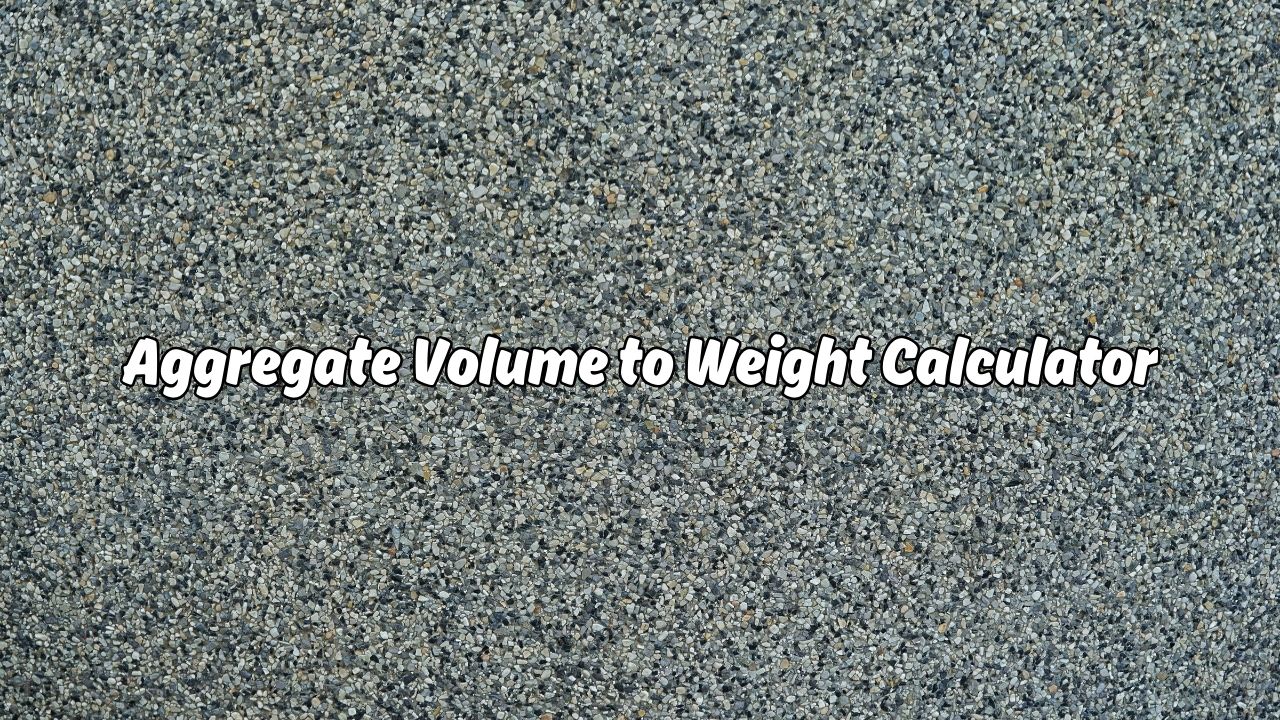Calculating the weight of aggregate based on its volume and density is essential in construction and material estimation. Our Aggregate Volume to Weight Calculator simplifies this process by allowing users to input volume and density values to get the weight in various units.
What is Aggregate Volume to Weight Conversion?
Aggregate materials like sand, gravel, and crushed stone have different densities, meaning their weight varies based on volume. By knowing the density of a material and its volume, we can calculate its total weight using the following formula:
Weight=Volume×Density
Where:
- Weight is the total weight of the aggregate (kg, tons, or lbs)
- Volume is the amount of aggregate (cubic meters, cubic feet, or cubic yards)
- Density is the material density (kg/m³ or lbs/ft³)
Formula for Aggregate Weight Calculation
Step 1: Convert Volume to Cubic Meters (m³)
Depending on the input unit, volume is converted to cubic meters using:
Volume(m3)=⎩⎨⎧Volume×0.0283168,Volume×0.764555,Volume,if in ft3if in yd3if already in m3
Step 2: Convert Density to kg/m³
If the density is in pounds per cubic foot (lbs/ft³), it is converted to kg/m³ as follows:
Density(kg/m3)=Density(lbs/ft3)×16.0185
If the density is already in kg/m³, no conversion is needed.
Step 3: Calculate the Weight in Kilograms (kg)
Using the formula:
Weight(kg)=Volume(m3)×Density(kg/m3)
Step 4: Convert Weight to Required Units
The weight can be converted into tons or pounds:
Convert to tons:
Weight(tons)=1000Weight(kg)
Convert to pounds:
Weight(lbs)=Weight(kg)×2.20462
Example Calculation
Let's assume we have:
- Volume = 5 cubic yards (yd³)
- Density = 100 lbs/ft³
Step 1: Convert Volume to Cubic Meters
Volume(m3)=5×0.764555=3.8228 m3
Step 2: Convert Density to kg/m³
Density(kg/m3)=100×16.0185=1601.85 kg/m3
Step 3: Calculate Weight in Kilograms
Weight(kg)=3.8228×1601.85=6122.5 kg
Step 4: Convert Weight to Tons and Pounds
Convert to tons:
Weight(tons)=10006122.5=6.12 tons
Convert to pounds:
Weight(lbs)=6122.5×2.20462=13493.6 lbs
Conclusion
The Aggregate Volume to Weight Calculator simplifies material estimation by automatically converting volume to weight based on the density of the material. Whether you're working with sand, gravel, crushed stone, or other aggregates, this calculator ensures accuracy and saves time.

Check out 1 Similar Calculators: